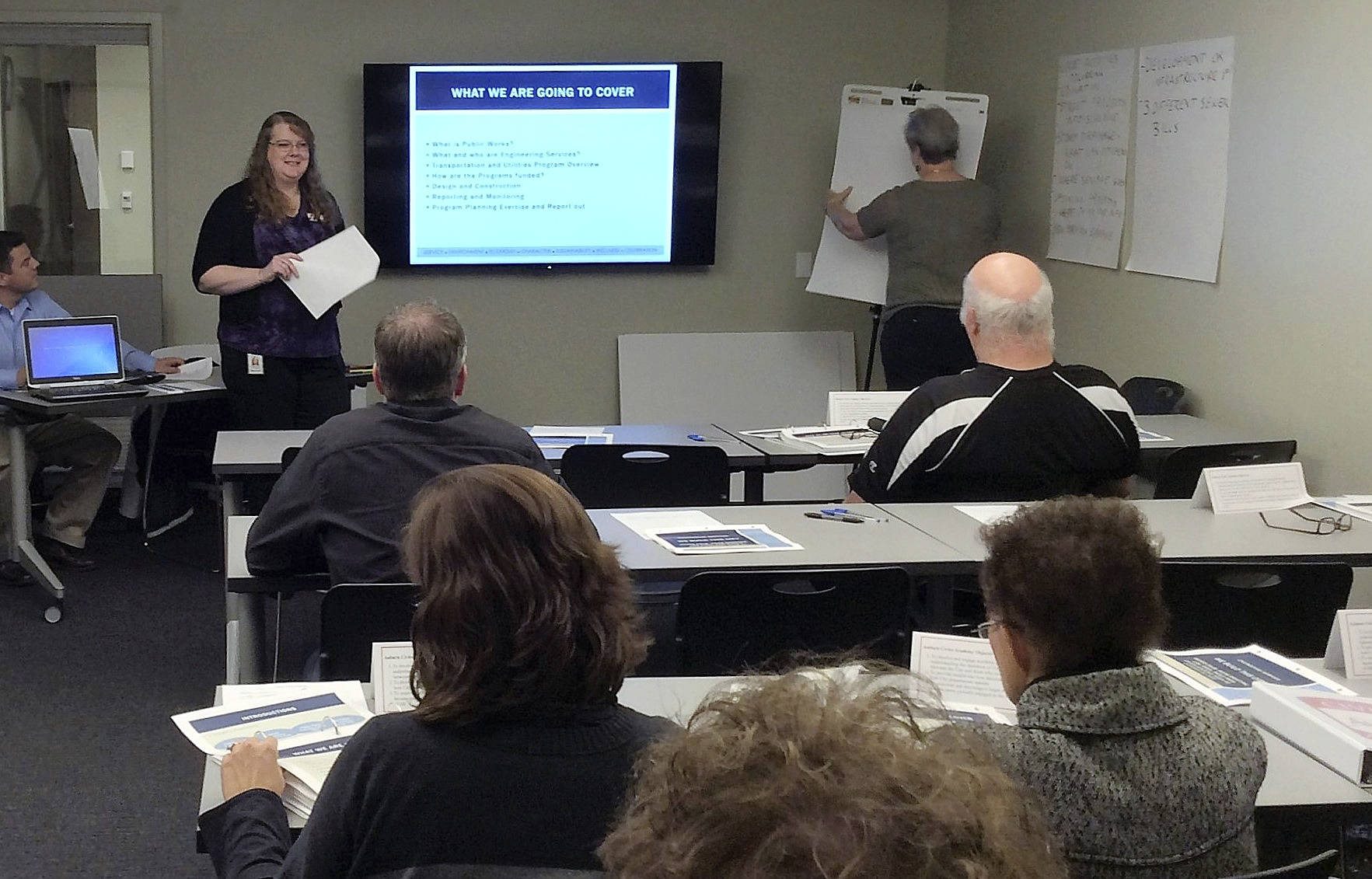City government touches many facets of the everyday lives of Auburnites, from fixing potholes to maintaining parks, from providing the clean water that comes out of their taps, to the police officer who hustles to their aid.
Of course, nothing happens automatically; hundreds of city employees work hard every day and night to keep it clicking.
So, wanna meet the people who keep the gears turning? Wanna learn how city government operates, and how the bigwigs and medium-level wigs make their decisions?
Then, check out Auburn’s free Civics Academy. For the last three years, it has been providing a look into the workings of the city and engaging participants in a hands-on overview of city government, said Erika Klyce, neighborhood coordinator for the City of Auburn.
“It was something that a lot of other cities had already started doing, and we were doing a lot of neighborhood meetings, we were hearing a lot of the same concerns, we were giving a lot of the same answers,” Klyce explained. “So, we just thought, let’s come up with a class so we can teach these different topics and provide all of the answers, and give people the opportunity to take it for free if they are interested and learn how city government works.”
Over the course of the 11-week program, Klyce continued, participants learn all about how decisions are made, where funds are allocated, hopefully to come to an enhanced understanding of the organizational structure and the operations of the various city departments that impact their quality of life.
Now, some out there might think, nah, sounds like dullsville, baby.
But consider this: in the academy’s first two years, every seat had a behind in it. Indeed, so great has interest been that the city expanded the academy from its original capacity of 11 persons to 25. The class is only for Auburn residents, business owners or employees, students and anyone who is not running for, or who is currently serving in, a political office.
“It isn’t dry, surprisingly,” Klyce said. “Each department does something a bit different and interactive, and each puts its own spin on it. Our Maintenance and Operations Department opens up its facility at C Street and does a tour of the facility, shows you a pothole. You get to tour the city’s water and sewer facilities. and see what actually goes on there.”
Classes meet each Thursday from 6:30 to 8:30 p.m., Sept. 6-Nov.15, in the Council Chambers at Auburn City Hall, 25 West Main St., with Saturday sessions from 9 a.m. to noon on Oct. 6 and 20.
Participants must be willing to commit to be at all sessions, though they may miss one and still graduate.
Sampling of classes:
Week 1, Thursday, Sept. 6 – City Government 101: Organization, Vision and Mission;
Week 2, Thursday, Sept. 13 – Where Does Your Money Go, and What Does It Do when it gets there?;
Week 3, Thursday, Sept. 20 – Legal Department & Risk Management;
Week 4, Thursday, Sept. 27 – Planning & Building for Today and Tomorrow. Community Development and Public Works – Community Development Services;
Week 7, Saturday, Oct. 20 – Keeping Citizens Safe, class meets the Valley Regional Fire Authority (VRFA) at Fire Station 33.
Joy Scott, Neighborhood Programs manager for the City of Auburn, said the idea is that when residents are better informed about how their city operates, how decisions are made and how funds are allocated, they will make better decisions about the future of their city. In addition, the city wants to empower and encourage a larger number of residents and business owners to become more civically engaged in decisions to come that affect Auburn’s quality of life.
“Part of every presentation has a how-you-can-get-involved piece,” Klyce said. “So each department talks about either volunteer opportunities or board and commission opportunities, or different ways to engage with those departments.”
For more information, contact: Erika Klyce, City of Auburn, Neighborhood Coordinator, at eklyce@auburnwa.gov, or 253-876-1988.


